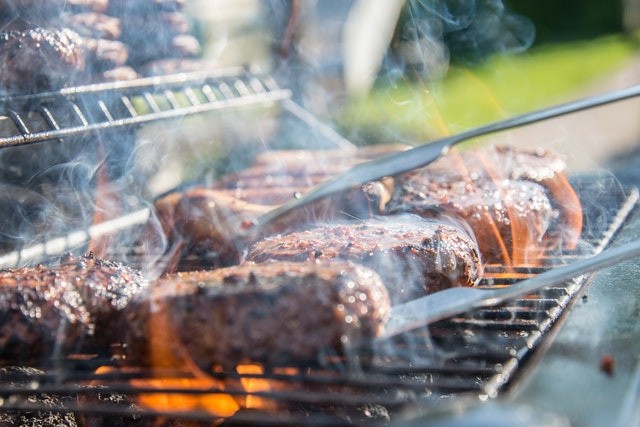An international non-profit environmental organization known as the Natural Resources Defense Council has released a report on climate-warming pollution and food in the United States.
The organization which was founded in 1970 listed up to 10 common foods they consider to be highly damaging to the climate, especially concerning the vast amounts of carbon dioxide released for every kilogram of food produced.
The study, which was monitored closely by USDA's Economic Research Service, analyzed up to 197 foods. Then the cumulative climate-warming pollution right from 2005 to 2014 was tallied.

Reasons for Omitting Some Foods from the List
Some foods were not included in the list since many people either avoid them deliberately or were not familiar with them. NRDC also omitted some foods since excluding them was almost impossible as they are usually part of other products' ingredients. Such foods include:
- Dry milk products (10.4kg of carbon dioxide per kg of food)
- Lard and beef tallow (11.92kg of carbon dioxide per kg of food)
- Palm oil and other fats and oils (6.30kg of carbon dioxide per kg of food)
Foods that Damage the Climate
1. Beef
Beef is the first on this list and recognized as the #1 most climate-damaging food. According to a study by the same non-profit organization in 2017, each kilogram of beef produces up to 26.5 kg of carbon dioxide emissions.
It is by far the highest among all the foods closely observed in the study, and it is five times more than turkey or chicken meat.
According to one of the study authors, Sujatha Bergen, beef is bad since the feed is mostly produced using lots of fertilizer and pesticide, which place enormous demands on fossil fuels.
According to the United Nations Food and Agriculture Organization, animal agriculture is supposedly responsible for up to 14.5 percent of the entire world's greenhouse emissions.
This makes animal agriculture a highly considerable contributor to climate change. 65 percent of those greenhouse emissions originate from dairy cattle and beef.
The only way to curb global emissions is by minimizing beef consumption. Americans presently consume 19 percent less beef than they did in 2005.
ALSO READ: Essential Food Supplements For Women
2. Butter
One kilogram of butter is equal to almost 12 kilograms of carbon dioxide, about half as many as beef. It belongs to the same supply chain as beef.
Americans may have reduced red meat consumption, but the NRDC report still informs that butter and other dairy products such as yogurt and cheese are still consumed in substantial quantities.
Butter is bad because producing it requires several energy-intensive steps.
3. Lamb
It appears red meat is resource-intensive and damaging not only to humans but also to the environment. Every kilogram of lamb consumed results in 22.9 kg of carbon dioxide emissions.
Large amounts of animal feed mostly composed of resource intensive soy and corn which are required for meat production.
Manure and synthetic fertilizer used to grow the feed also release nitrous oxide, another climate-warming culprit and pollutant that is even 298 times more powerful than carbon dioxide.
4. Shellfish
For every kilogram of shellfish produced, the environment gets hit with up to 11.7 kg of carbon dioxide. Americans are now eating less shellfish along with pork, milk, and high-fructose corn syrup used as sweeteners in soft drinks.
Other climate-damaging foods include:
- Asparagus
- Cheese
- Veal
- Pork
- Turkey
- chicken
RELATED ARTICLE: NASA Is Develiping Space Farming; Growing Food On Mars
For more lists about foods and related topics, don't forget to follow Nature World News!
© 2026 NatureWorldNews.com All rights reserved. Do not reproduce without permission.





